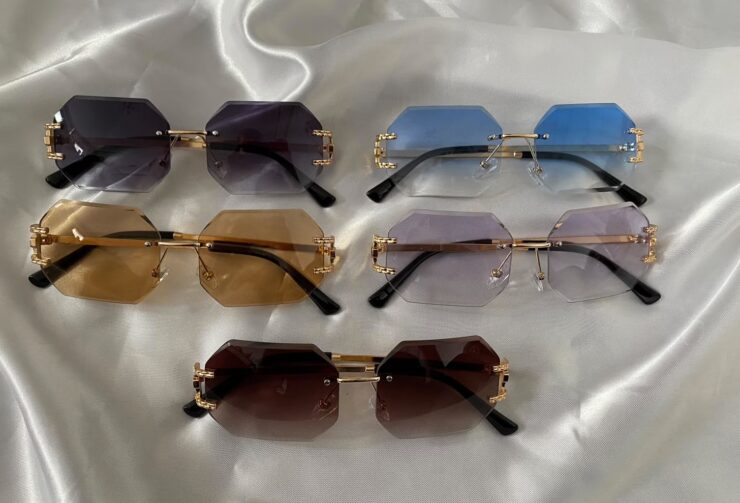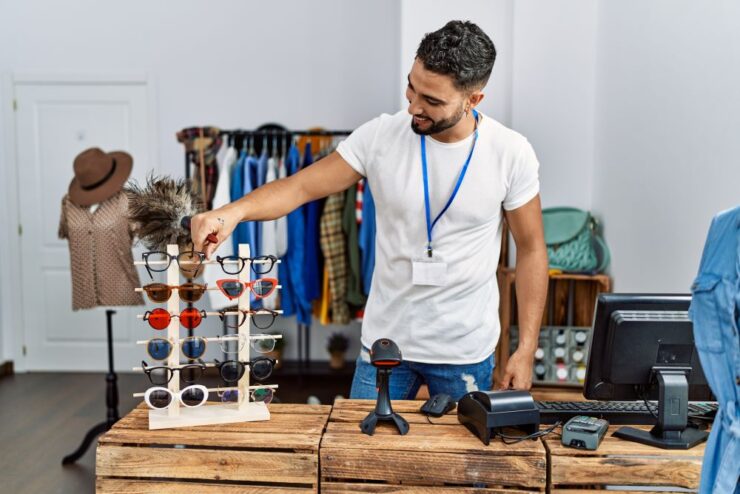Many entrepreneurs dream of starting their own fashion accessories business and for good reason. The experts at Olympic Eyewear tell us that the fashion accessories market is large, growing, and profitable.
Establishing your own wholesale sunglasses business, for example, means you have the potential to capture a part of this lucrative market. Nonetheless, like any new business venture, there are challenges and rewards when embarking on building your own fashion brand.
Developing Your Business Plan
Before diving into launching your fashion accessories business, the vital first step is to develop a comprehensive business plan. Your business plan should outline your company’s objectives, target market, startup and operational costs, competitive analysis, financial projections, and more. Having a clearly defined roadmap in place is essential when starting and growing your business.

Financing Your Wholesale Accessories Business
With your business plan in hand, you can start exploring financing options to fund your fashion startup. Common approaches include:
- Self-funding – Using your own savings and assets to self-fund some or all the initial costs. While challenging, this allows you to retain full ownership and control.
- Crowdfunding – Running an online fundraising campaign through platforms like Kickstarter or Indiegogo to raise donations for launch expenses. Great for gaining public awareness and enthusiasm for your brand early on.
- Loans – Borrowing startup capital from banks or other lending institutions. Government-backed loans like SBA funding programs can offer more favorable terms than standard commercial loans for fledgling businesses.
Each financing route has tradeoffs to weigh for your specific situation and business goals. A combination approach is often best to assemble adequate startup funding.
Legal and Regulatory Considerations
Navigating legal and regulatory obligations is crucial when launching your business. First, choose what legal business structure and tax designations make the most sense – most often LLCs, S-corps or C-corps. Consult an attorney and accountant to determine the optimal path to limit personal liability and minimize taxes.

Creating a Brand Identity
Defining a strong brand identity transforms a collection of fashion products into a recognizable label people can connect with. Key elements to consider when establishing your brand include branding style guidelines, brand storytelling, brand consistency, and differentiation.
Building a recognizable identity for your fashion label from day one sparks intrigue and loyalty needed to thrive long-term.
Choosing Your Initial Product Mix
The specific accessories you choose to focus your wholesale business on will have immense effects on costs, manufacturing strategies, distribution options and brand identity. Whatever foundational accessories you launch with, strive for versatility and diversification suited to varied buyer needs while staying true to your brand identity.
Operations and Fulfillment
On the operations side, choices around order fulfillment and logistics have major cost and customer satisfaction implications when selling wholesale. Options like warehousing, order processing/packing, shipping and returns handling can be managed in-house or outsourced to third-party logistics (3PL) firms. For smaller and midsize accessory businesses, partnering with one or more domestic 3PL providers is generally the most practical approach.

Conclusion
With careful planning, the generous margins and mass appeal surrounding affordable fashion accessories like wholesale sunglasses make the startup journey very achievable for emerging brands. Utilize the strategies outlined throughout this guide to methodically build your brand’s foundations. If you provide differentiated, attractive products at competitive price points and prioritize building retail relationships, your accessories company can realistically capture a lucrative niche. Avoid rushing the process or overextending yourself. Lay the groundwork thoughtfully across all areas of the business, reinvesting early profits to fuel expansion. Then, with consistent commitment to keep making measured improvements every season, your startup can organically join the ranks of thriving wholesale fashion brands.

